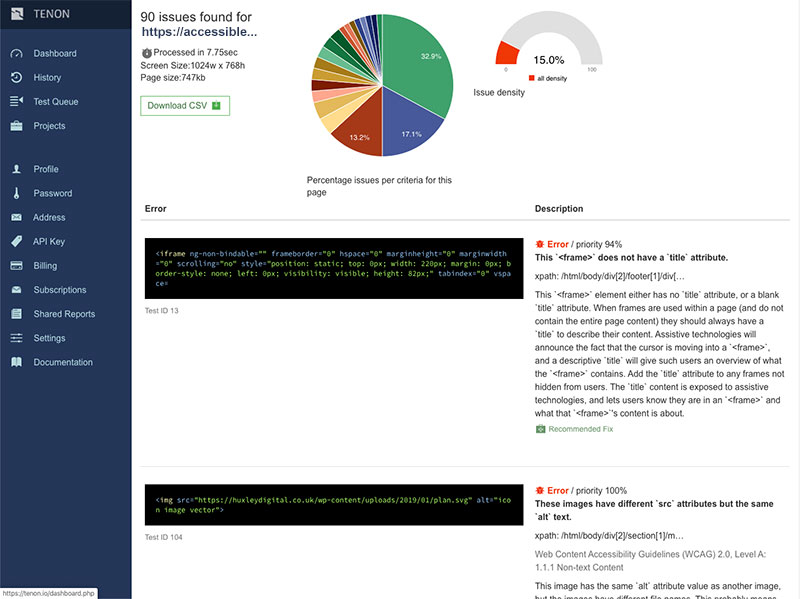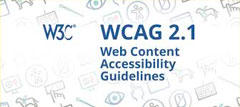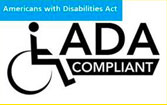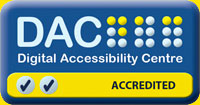Your website should be accessible for everyone. Full stop.
Accessibility isn’t an afterthought; it’s the heart of a user-friendly online experience, for everyone. We specialise in Web Accessibility because we believe the Internet should be fair and inclusive, and because accessible websites always perform better than ones that aren’t.
Your website features should enhance the experience for all users. Whether someone is navigating with a screen reader, a keyboard, or voice commands, your website should be a seamless experience for everyone.


What is Web Accessibility?
The goal of web accessibility is to ensure that all individuals, regardless of their abilities or disabilities, can perceive, understand, navigate, and interact with the content on the web.
When you cross the road, you might use a Green Man crossing. The ‘beep beep’ helps blind people know when it’s safe to cross, but everyone else finds that sound useful too. Because everyone has been considered in the design of the Green Man crossing, it’s more effective for everyone too. This is Universal Design.
Universal Design isn't a niche concept; it's a digital necessity.
Web accessibility benefits not only people with disabilities, but everyone. Creating content that is easy to navigate using a keyboard or providing text alternatives for images can be helpful for people using mobile devices, those with slow internet connections, or non-traditional browsing methods.
We all use lifts, we all use handrails, we all like more space, we all like clear signage. We all appreciate things when they are accessible. We all use things more if they are accessible.
Make your website accessible for all
Our team has years of experience in web development and design for human interaction, meaning that we can code your brand new site to be compliant from scratch, or amend your existing site to work for all users. And we don’t stop at design and development; we can also assist with training, advice, consultancy, and web accessibility auditing.
Our UX Lab includes devices of all types, as well as screen-reading technology. We have built up a diverse database of user testing candidates that include people from all backgrounds. These people contribute to our testing processes by providing first-hand experience of using our products with cognitive, visual and mobility disabilities.




Benefits of having an accessible website
Adhering to web accessibility standards, such as the Web Content Accessibility Guidelines (WCAG), not only makes websites more inclusive, but also often leads to improved search engine optimisation and a better overall user experience for everyone.
Everyone who visits your website, can use your website
You want your visitors to be able to use your website, especially when these visitors are likely existing or potential customers. If people visit your website and can’t read the content, can’t click on your products, or can’t fill in a form, they will likely never be able to become a customer.
Search Engines will prefer you
You should treat Search Engines, like Google, like blind users of your website. Google can’t see that you have a product image on your page; but they can when you include Alt text. By incorporating accessible features on your website, like alt text on images, your SEO will also improve, meaning your customers are even more likely to find your site.
Improved brand reputation and customer experience
Remember what we said earlier? ‘75% of disabled people and their families have walked away from a business because of poor accessibility’. Not only this, but ‘Businesses that prioritise digital accessibility experience an average 20% increase in market value'. It literally pays to be more accessible.
© 2025 Huxley Digital. Registered Company No: 9863911. Read our Privacy Policy. Manage your cookies.